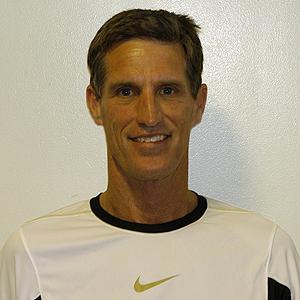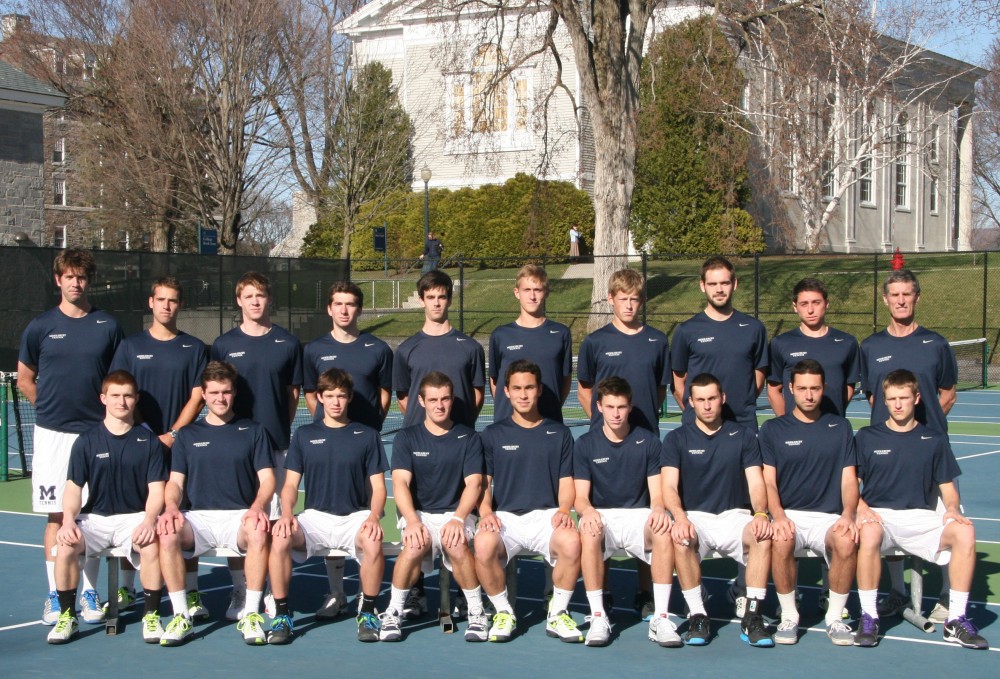
Coach Hansen
Bob Hansen was appointed Head Coach of the Middlebury men’s tennis team in July 2011, when he moved to Vermont from the University of California, Santa Cruz (UCSC) where he had established an unparalleled reputation in Division III tennis.
Graduating from San Jose State University in 1975 with a degree in physical education, the young Bob Hansen spent a short time on the professional ATP circuit, reaching the top 300 in the world rankings. He founded the tennis program at UCSC in 1977 and during his tenure in California he led the Santa Cruz team to no fewer than seven NCAA Division III team championships, five singles championships and ten doubles championships. UCSC were runners up in the team championships on a further six occasions. In 2005, the team achieved a triple crown, winning the NCAA championships in the team, individual and doubles events. Two years later, UCSC were the first team ever to win both the Intercollegiate Tennis Association (ITA) National Indoor Title and the NCAA Team Championships in the same year. Under Coach Hansen’s leadership, the UCSC tennis program produced a grand total of 117 All Americans.
Coach Hansen has been named ITA Coach of the Year on four occasions, and in 2000 he was elected ITA coach of the Decade for the 1990’s. Since his arrival at Middlebury, the Panthers reached the NCAA Finals in both 2012 and 2013, advancing to the quarter finals in 2013, a year in which the team posted a 20-5 record. A particular recent highlight of Coach Hansen’s leadership at Middlebury was the title win of Brantner Jones and Palmer Campbell at the USTA/ITA Small College National Tennis Doubles Championships.

Men’s team photo of 2013
AJ: What was the secret to your success during your years as Head Coach at UC Santa Cruz?
Coach Hansen: I am quite sure there is not one secret to the success we enjoyed at UC Santa Cruz but a few key contributors. First off we had a number of very committed student athletes who were extremely excited about seeing how good they could become as tennis players and team mates. An environment was created that was fertile, compelling and motivating and players got better at a rapid rate. Once the team culture was established, players who wanted to work hard and improve were attracted to this team. We did not have much support from the University but we did have a beautiful training environment with great weather and an adequate number of courts. We set the course to become the best team in the country and enjoyed the process of consistently moving in the direction of that goal. Since there were few Division lll schools in the area, we played about half of our dual matches against Division I scholarship programs which provided great training for our long term improvement. We worked hard, loved the work and the process but most importantly, each other. This bond made us much better as a team than the sum of our individual talent. From the start, we got great support from Sports Psychologist Jerry Lynch who helped us shape this championship culture. The courage, passion, hard work and shared leadership of our athletes was the base of our success.
AJ: What does it take to build a successful team?
Coach Hansen: In my opinion creating a successful team involves developing high levels of respect across all relationships where learning and coaching can occur at high levels. When this foundation is set, enjoyment levels are high, the team and sports experience is meaningful, motivation and momentum build and great things happen. Enjoyment, sacrifice and hard work are key ingredients to a successful team but strong relationships make it soar.

